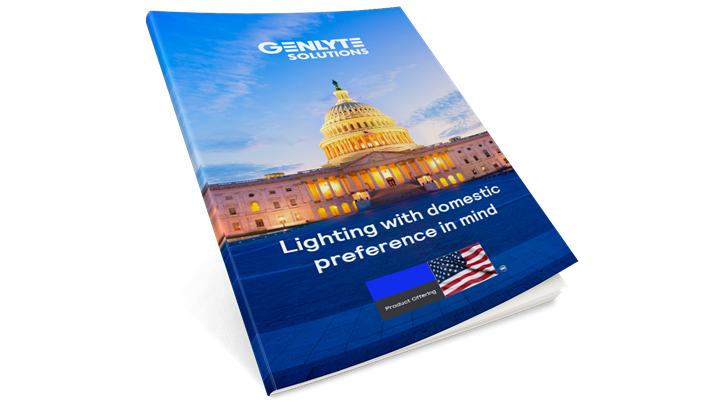What BAA says:
The Buy American Act of 1933 (BAA) applies when the US federal government is purchasing goods or services (construction) for its own use and such purchases exceed the micro-purchase threshold (currently $10,000) and are below the applicable dollar threshold for Trade Agreements Act applicability. The BAA restricts the Federal government from purchasing non-domestic goods by establishing a preference for “domestic end products” and “domestic construction materials.” What qualifies as “domestic” under the BAA differs depending on whether the applicable manufactured end product or construction material consists wholly or predominantly of iron or steel or a combination of both.
With respect to items that do not consist wholly or predominantly of iron or steel or a combination of both, the BAA applies a two-part test. The item must be “manufactured” in the US and either: (a) the cost of its components mined, produced, or manufactured in the US exceeds 65% of the cost of all its components, or (b) it is a commercially available off-the-shelf (COTS) item. In other words, a COTS item that is manufactured in the US is considered domestic regardless of the percentage of domestic components in such item. Note that the 65% domestic content requirement applicable to non-COTS items is scheduled to increase to 75% in 2029.
With respect to items that do consist wholly or predominantly of iron or steel or a combination of both, the BAA also applies a two-part test. The item must be “manufactured” in the US and the cost of foreign iron and steel must constitute less than 5% of the cost of all the components used in the end product.
What TAA says:
The TAA applies when the US federal government is purchasing goods or services (construction) for its own use, AND the project value exceeds the applicable TAA monetary thresholds. The applicable TAA monetary threshold varies based on several factors, including the governmental entity, the trade agreement involved, the country and the contract type, e.g., supply, service or construction. The TAA waives application of the BAA’s restrictions with respect to “eligible” products from countries that have trade agreements with the US or meet certain other criteria. In general, a product is TAA-compliant if it is manufactured in the US or “substantially transformed” in a “designated country”. There are over 100 “designated countries”, including Canada and Mexico. In other words, products from these countries are eligible for procurement by the US federal government. Notably, the TAA excludes China and India.
What BABA says:
The Build America, Buy America Act (BABA) establishes the minimum domestic content preference that Federal agencies must apply to federally funded infrastructure projects. Unlike BAA and TAA, BABA does not apply when the US federal government is purchasing goods or services (construction) for its own use. BABA aimed to get uniformity across the various “Made in America Laws”, which term is broadly defined by BABA to include all statutes, regulations, rules, and Executive Orders relating to Federal financial assistance awards or Federal procurement, including those of the various Department of Transportation (DoT) agencies (e.g., FAA, FHWA, FTA or FRA). “Buy America” is another term commonly used to refer to those domestic content restrictions. In the event that an agency has stricter requirements than those set forth in BABA, such agency’s requirements will apply. Thus, it is imperative that the specific agency’s requirement be identified to avoid the risk that the products will not be compliant with the domestic preference requirements of the relevant federal agency.
BABA requires that items be “produced in the United States.” The applicable standard varies based on category of the item, i.e., manufactured product, iron or steel product, or construction material.
BABA requires that the product is manufactured in the US and that the cost of components of the manufactured product that are mined, produced or manufactured in the United States must be greater than 55% of the total cost of all its components.
BABA requires that all manufacturing processes, from the initial melting state through the application of coatings, must occur in the US.
BABA requires that all manufacturing processes on the construction material must occur in the US. The definition of “all manufacturing processes” varies based on the specific type of construction material. For example, for non-ferrous metals, e.g., aluminum all manufacturing processes, from initial smelting or melting through final shaping, coating, and assembly, must occur in the US.
Identifying the applicable requirement:
The recipient of the funding, rather than Signify , has the ultimate responsibility of identifying the applicable domestic preference requirement, e.g., BAA TAA or FHWA.” The applicable requirement is typically identified in the RFP/project documentation.
No matter your application, Signify has hundreds of lighting products that meet domestic preference requirements. Please reference this list prior to placing your order to ensure your specific configurations are included.
